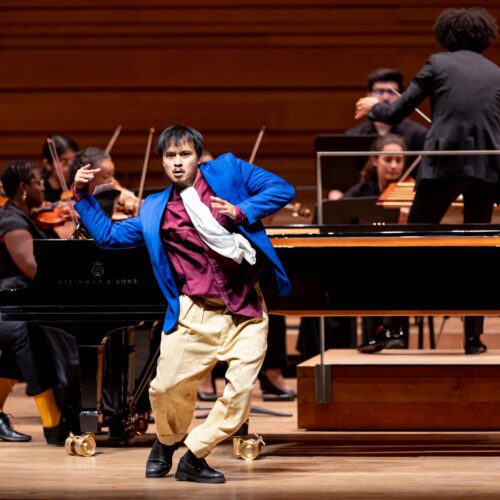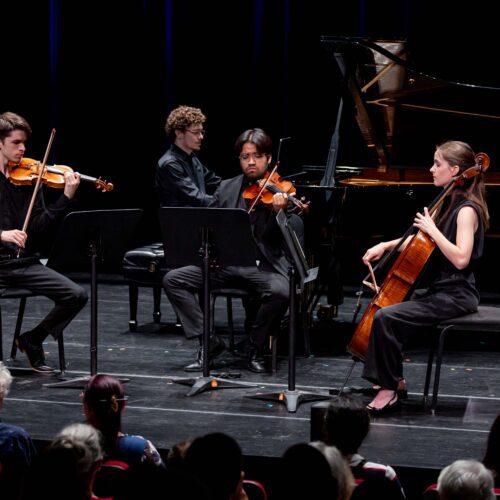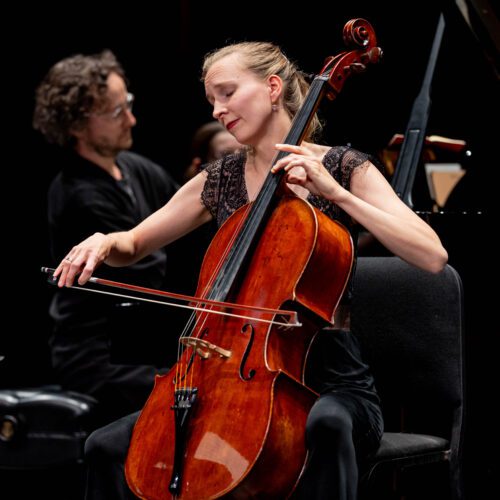A packed Cinquième Salle at 11 a.m. on Saturday, August 16, welcomed the duo on stage and in life, consisting of pianist Martin Helmchen and cellist Marie-Elizabeth Hecker. The Classical Spree seems to work well, and that’s all the better. Especially since the two artists had put together a fairly solid and substantial program, even for a little forty minutes of music.
LISTEN TO THE INTERVIEW WITH MARTIN HELMCHEN ABOUT THE PROGRAM OF THIS CONCERT
They launched into a very beautiful Waldesruhe [Forest Calm], Op. 68, No. 5 by Dvořák, in beautiful melodic lace, supported by very delicate playing. This was followed by Fauré’s Papillon, Op. 77, a formidable piece for cello, which Hecker mastered well, though without all the desired ease in the agility of the swirling lines. A bright start to the programme gave way to the sublime greyness of Schubert’s Winterreise, of which three excerpts were played, Gute Nacht [Good Night], Der Lindenbaum [The Linden Tree] and Der Leiermann [The Hurdy-Gurdy Man]. Here we felt the intimate complicity between the two artists, and above all the deep understanding of Schubert’s universe. It was very beautiful. The highlight of the morning was yet to come: the tortuous, even gloomy Sonata for Cello and Piano No. 1 by Alfred Schnittke, a 20th-century Russian composer of Germanic origin.
A bold but rewarding choice, as this work with Shostakovichian energy and dramatic intensity is incredibly impressive. Despite the demands it makes on the ears of the listeners, the audience hailed an impeccable and exciting interpretation, solidified by the fact that the two artists have it “in their fingers,” as they play it often these days. They have indeed just released a recording of it on the Alpha Classics label, along with other Eastern European sonatas. The morning could have been marked by near-perfection had it not been for three or four professional and ostentatious coughers, as well as, horror of horrors, a phone ringing in the very last, barely-whispered chords of the Schnittke. Embarrassing.
























